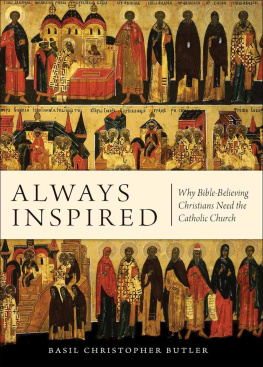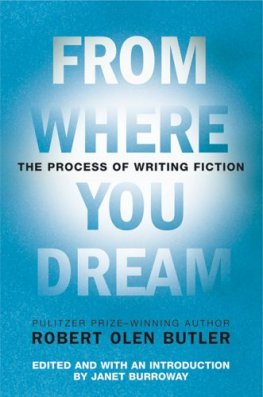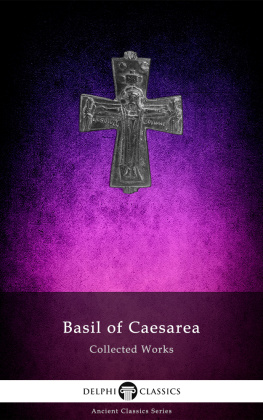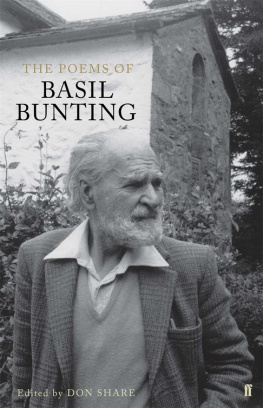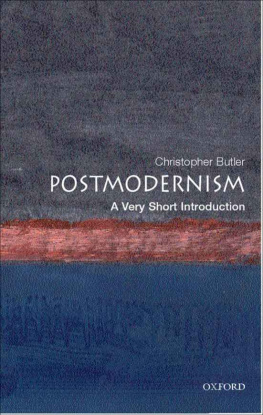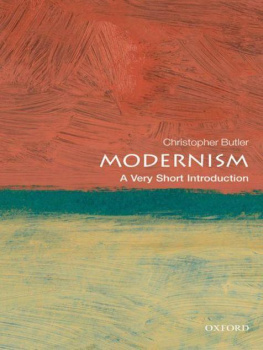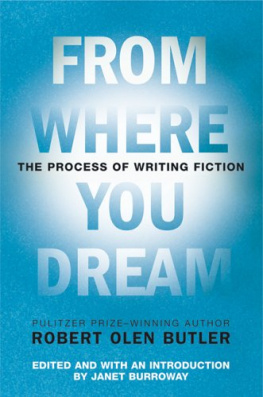Basil Christopher Butler - Always Inspired
Here you can read online Basil Christopher Butler - Always Inspired full text of the book (entire story) in english for free. Download pdf and epub, get meaning, cover and reviews about this ebook. year: 2013, publisher: Sophia Institute Press, genre: Religion. Description of the work, (preface) as well as reviews are available. Best literature library LitArk.com created for fans of good reading and offers a wide selection of genres:
Romance novel
Science fiction
Adventure
Detective
Science
History
Home and family
Prose
Art
Politics
Computer
Non-fiction
Religion
Business
Children
Humor
Choose a favorite category and find really read worthwhile books. Enjoy immersion in the world of imagination, feel the emotions of the characters or learn something new for yourself, make an fascinating discovery.
- Book:Always Inspired
- Author:
- Publisher:Sophia Institute Press
- Genre:
- Year:2013
- Rating:5 / 5
- Favourites:Add to favourites
- Your mark:
- 100
- 1
- 2
- 3
- 4
- 5
Always Inspired: summary, description and annotation
We offer to read an annotation, description, summary or preface (depends on what the author of the book "Always Inspired" wrote himself). If you haven't found the necessary information about the book — write in the comments, we will try to find it.
Always Inspired — read online for free the complete book (whole text) full work
Below is the text of the book, divided by pages. System saving the place of the last page read, allows you to conveniently read the book "Always Inspired" online for free, without having to search again every time where you left off. Put a bookmark, and you can go to the page where you finished reading at any time.
Font size:
Interval:
Bookmark:
Always Inspired
Why Bible-Believing Christians Need the Catholic Church
Basil Christopher Butler
Abbot of Downside
SOPHIA INSTITUTE PRESS
Manchester, New Hampshire
Always Inspired was first published under the title The Church and the Bible by Darton, Longman, & Todd, Ltd., London: 1960.
Basil Christopher Butler 1960, 2012.
Sophia Institute Press
Box 5284, Manchester, NH 03108
1-800-888-9344
www.SophiaInstitute.com
Sophia Institute Press is a registered trademark of Sophia Institute.
Cover design by Carolyn McKinney.
Photo credit: Council of Nicaea, Novogrod School,
Gianni Dagli Orti / The Art Archive at Art Resource, NY
Printed in the United States of America.
Nihil Obstat:
Joannes M. T. Barton, STD LSS.
Censor Deputatis.
Imprimatur:
E. Morrogh Bernard, Vicar General .
Westmonasterii, die 31A Januarii, 1959.
NOTE
The three chapters of this book originally formed the three Lauriston Lectures for 1958 and the informal style of the spoken word has been retained.
CHAPTER ONE
A View from Outside
We believe that Our Lord gave to his Church a mission to all men in all places and for all historical time: 'You must go out, making disciples of all nations, and baptizing them in the name of the Father and of the Son and of the Holy Ghost, teaching them to observe all the commandments which I have given you. And behold I am with you all through the days that are coming, until the consummation of the world' (Mt. 28:19 f).
It is part of good missionary technique to try to enter into the point of view of those you are trying to convert; to see yourself and your message, for a moment, as they see you and it. So doing you can hope to remove their misconceptions, and not to drive them still further from the truth by the use of language and of an approach which they will inevitably misconstrue.
So let us ask ourselves how an intelligent unbeliever would view the Christian fact in history. He would see Christianity as one of the great world faiths, alongside Islam, Hinduism, Buddhism, Confucianism and Taoism. And he might reflect that at the present day it is numerically the largest, probably, of these conglomerations of believers.
How is Christianity distinguished from the other great faiths? To begin with, it might be pointed out that Judaism (which though not numerically great is very widespread), Islam and Christianity form a single group of religions, whose peculiarity is that these three all claim to rest their teaching on truth historically revealed by God, not merely on human reflection and discovery. This revelation, they claim, was given by God at particular moments or periods to individuals or groups entrusted with the task of passing on the truth thus revealed to others. We owe the steam engine to the intelligence and inventiveness of a particular man, but in theory it was open to anyone, who was clever enough, to harness steam to human use; whereas a prophet is one who is entirely dependent for his message on God who chooses to reveal it to him. In contrast to this idea of divine revelation, the Buddha, for instance, is represented as an earnest thinker who, as the result of long strife of soul, discovered for himself a truth or mode of life which he then, in the kindness of his heart, wished to share with others, so that they in their turn might enjoy the emancipation which it had brought him. Similarly, neither Confucius nor Lao-tse, the founder of Taoism, claimed, so far as we can judge, to be more than a wise man passing on, doubtless with improvements due to himself, the traditional wisdom of past ages. Hinduism points to many 'saviours', but on examination they seem to have been religious geniuses or holy men who had by their piety and goodness made themselves as it were translucent to that spiritual truth which is available, on the Indian view, to all who seek it, without any special divine intervention or revelation.
Thus it is a distinguishing feature of Judaism, Christianity and Islam, as compared with these other great faiths, that they claim to possess and to hand on a divine revelation indeed, up to a point, they all transmit the same revelation. The roots of Christianity are in the faith, the practice, and the tradition of ancient Israel, to which of course modern Judaism also looks back; and Christianity has refused to disown its Israelite or Jewish past. Islam, from the point of view of the impartial unbeliever, could be described as something like a heresy or aberration from the main stream of Israelite-Christian orthodoxy; it recognizes the authority of the Israelite prophets, and even views Jesus Christ as one of the greatest prophets. But for Islam, and here of course Judaism and Christianity disagree with it, the supreme prophet is Mahomet, and the revelation which he received is deposited in the Koran.
The notion of revelation, of the revealed 'word' of God to man, puts these three faiths together over against the other great world-faiths. It means, for those who accept it, that man has not been left to his own unaided resources in the search for a truth by which he may live and in the strength of which he may have hope, but that God the creator and judge of all men has, in his limitless mercy, put out a hand to help us in our gropings towards him (Acts 17: 27) ; has told us what we need to know about himself and his will. Christianity adds that this divine self-revelation was made in an act of redeeming love; not truth only but grace has come to us through Jesus Christ.
Christianity, in fact, has taken this notion of revelation, of a word of God revealed by God himself to man, and has pushed it to its furthest limits has developed the notion, so to speak, to its perfect stature. Judaism and Christianity both teach that God uttered his word through Moses and the prophets of Israel, and so 'spoke' to the Old Testament People of God 'through the prophets' (Heb. 1:1), who were purely human mediators or transmitters of the divine message. But the Christian adds that 'in these last days' he has spoken a final and complete word to man in Jesus Christ his Son (ibid., 1:2): 'The word' of God 'was made flesh and came to dwell among us' (Jn. 1:14). Here there is no distinction between the word and its human mediator; the human Jesus is the word which he transmits. The Man Jesus Christ, to whom we look back as the founder of our faith and the source of our saving knowledge of God, was in his own person, as involved in his historical life and death and in his resurrection, both the revealer of truth and the truth revealed; he was 'the word who was originally with God and was himself God', and in becoming roan he did not cease to be what he eternally was. Nor is he just a word of God; he is the word, 'in whom the whole treasury of wisdom and knowledge is stored up' (Col. 2:3). All previous revelation was summed up and re-expressed in him, and no further disclosure of divine truth, beyond that which may be found in him, may be looked for by the believer.
The word of God made man, Jesus Christ, did not come to a world entirely unprepared to receive him. As has been said, the Christian Church affirms the truth for its own age of the Old Testament revelation. It is thus part of the Christian message that God had been educating the People of Israel for centuries to a knowledge of himself and his will higher and more effective than that to which other peoples had attained. God had not left mankind without any evidence of his provident care in those ages preceding the incarnation of his Son. Creation itself is attributed, in Ps. 32:6, and in Gen. 1:3, to a word of God: 'God said, Let there be light; and there was light....' So the created universe, which exists only in obedience to God's word and according to the content of that word, is in some sense a reflection of the thought of God expressed therein. 'God's eternal power and divineness', says St. Paul, are understood and made manifest in the things which he has made (Rom. 1:20). But on the basis of what we may call the general revelation of the created order there has also been a system of progressive special revelation to Israel, above all in the days of Moses and of the establishment of the 'covenant' between Israel and God at that time.
Next pageFont size:
Interval:
Bookmark:
Similar books «Always Inspired»
Look at similar books to Always Inspired. We have selected literature similar in name and meaning in the hope of providing readers with more options to find new, interesting, not yet read works.
Discussion, reviews of the book Always Inspired and just readers' own opinions. Leave your comments, write what you think about the work, its meaning or the main characters. Specify what exactly you liked and what you didn't like, and why you think so.

